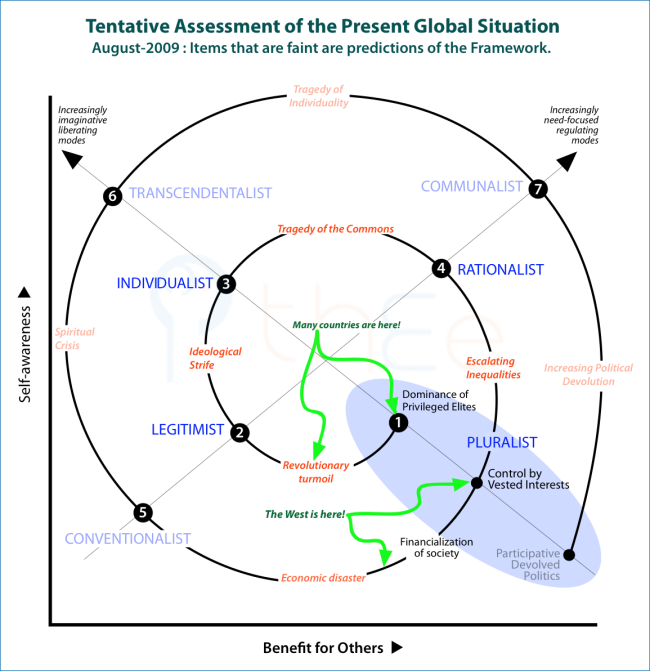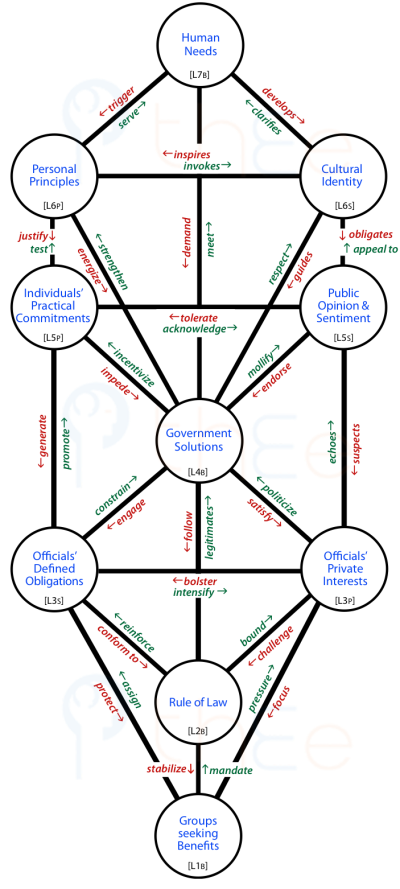Varieties of Government
![]() Government can be assessed in terms of the way this framework is used.
Government can be assessed in terms of the way this framework is used.
This page assumes an understanding of Political Maturation.
Authoritarian Regimes
Any society requires the differential benefits for groups to be more or less tolerated and group struggles to be more or less peaceful and in equilibrium. If not, there will be social turmoil as groups turn to violence to regain (or gain more) power and wealth.
If this persists or worsens, the society becomes a «failed state». Looting, gang violence and warlords disrupt ordinary communal living. In such situations, much of the superstructure of , simply cannot function properly or even at all. There is no and individuals are left wholly to their own devices in regard to meeting their .
In Singapore, Lee Kwan Yew shrewdly observed and proved that:
- If the powerful use their power to give the people plenty of opportunities to better themselves through hard work,
and
- if government ruthlessly removes corruption and crime in high places (i.e. rule of law) while respecting merit,
then
- you find that much of the demand for democracy withers away.
Pressures on Governments
A Stage-1 Political Society has not matured politically at all. The challenge for the regime is to ensure stability while strengthening the country, despite the government's use of repression and oppression—hence the label «authoritarian».
Stage-1 Pragmatic-Pluralist societies


In this modern era, many current are under pressure to move towards a . Until they do this unequivocally, the societies will be periodically subject to social disruption, even revolutionary turmoil, as discriminated and non-enfranchised groups protest. In modern times, it has got somewhat harder for government to stay at , ignore laws, trample over human rights, and repress all dissent—but it is still quite common.
CL3: Elite Interests
Even if a government merely leans towards authoritarian (i.e. applies rule of law flexibly, limits enfranchisement), the of the elites will over-ride any sense of their obligations. In such societies, virtually no-one in power will be trusted, or even expected to act for the good of society: something like this seems to apply in Thailand at present.
CL4: Government Choices
often have rather limited rational or consultative components; and politicians stay a long way away from where their decisions have effects. So there will be damage to the environment and to whole villages or towns due to «tragedy of the commons» effects, free-riding, and just dumping «bads» on the public because it is expedient.
CL5-CL7: Concerns of the People
The management of may be attempted forcefully via restriction or distortion of statistics, internal propaganda, and control of media. Ways to distract people and activate positive moods will also be developed. Society will suffer if its is in disarray and people become too disillusioned with politicians, policies and political efforts.
Governments will then have much difficulty in addressing what individuals, communities and groups actually for a decent life. Neglected or severely disadvantaged communities often depend on philanthropic efforts and committed workers locally, and possibly from abroad to provide basic education, sanitation, and health-care.
Originally posted: July 2009; Last updated: 27 Jan 2010.